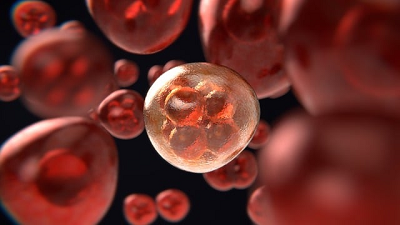Is Endometriosis a Precancerous Lesion of Ovarian Cancer?
Ovarian cancer is the second most common gynecological tumor in developed countries and the most lethal tumor of the female reproductive system. Despite advances in radical surgery and chemotherapy, the overall survival rate has not changed much in the past 30 years.

Endometriosis is a benign gynecological disease characterized by endometrial tissue located outside the uterus, which is the main cause of female infertility and dysmenorrhea.
The potential association between these two gynecological diseases has long been a subject of interest. Some studies suggest that patients with endometriosis may have a slightly higher risk of developing ovarian cancer. Is this really the case? Is endometriosis a precancerous lesion of ovarian cancer?
Is endometriosis a precancerous lesion of ovarian cancer?
Some studies suggest that women with endometriosis may have a higher risk of developing ovarian cancer, especially certain types of ovarian cancer, such as clear cell carcinoma and endometrioid carcinoma. This association may be related to factors such as chronic inflammation, hormonal imbalance, and abnormal tissue proliferation caused by endometriosis.
However, there is insufficient evidence to prove that endometriosis directly equals precancerous lesions in ovarian cancer.
Although endometriosis is a benign condition, it has malignant behaviors such as proliferation, infiltration, metastasis, and recurrence and has a mutation phenotype similar to ovarian cancer. Some studies suggest that long-term endometriosis, especially deep infiltrating endometriosis, may have the potential to transform into malignancy.
It is worth noting that some drugs used to treat endometriosis, such as danazol, have been shown to be associated with an increased risk of ovarian cancer.
Despite the association, this does not mean that endometriosis is equivalent to a precancerous lesion of ovarian cancer, but rather suggests that these potential risks need to be considered in the treatment. Moreover, most women with endometriosis do not develop ovarian cancer, and the overall likelihood of malignancy is low, with many patients never experiencing this progression.
Therefore, it is inaccurate to classify endometriosis as a precancerous lesion of ovarian cancer universally. For patients with endometriosis, it is crucial to undergo regular medical monitoring, keep track of any changes in their condition, and discuss suitable management strategies with doctors to prevent potential complications and maintain good health.
How to prevent pathological changes in endometriosis?
1. Avoid unnecessary gynecological examinations: Try to avoid repetitive or unnecessary gynecological examinations, especially near or during menstruation, to avoid squeezing the endometrium into the fallopian tubes.
2. Pay attention to the quality of gynecological surgery: If gynecological surgery is required, it should be avoided during menstruation. If unavoidable, the performance should be gentle and avoid forceful compression of the uterus to reduce the risk of indirectly inducing endometriosis.
3. Pay attention to operational norms during gynecological examinations: Doctors should follow appropriate procedural guidelines during gynecological examinations. For example, hysterosalpingography (HSG) should not be performed immediately after menstruation to reduce the possibility of endometriosis.
4. Maintain a healthy lifestyle: Adopt good dietary habits, engage in regular moderate exercise, and maintain a healthy weight. Avoid unhealthy habits such as smoking and excessive alcohol consumption to support overall health.
5. Herbal Medicine and Dietary Adjustments: Consume herbal medicines, such as Fuyan Pill, combined with dietary adjustments, can help improve physical condition and alleviate symptoms of endometriosis. However, any medication should be taken under the guidance of a doctor.
6. Regular Check-Ups and Consultations: Regular gynecological examinations can help detect and treat potential problems early. If symptoms of endometriosis occur, such as pelvic pain or irregular menstruation, patients should seek medical attention promptly and receive appropriate treatment and management.
Recommended Readings:
Is Endometriosis Prone to Recurrence?
Can You Still Be a Mom With Infertility In Advanced Age Combined With Severe Endometriosis?
What Are the "Exclusive" Characteristics of Endometriosis Patients?
previous pageEndometriosis: Injection, Surgery, or IUD?
next page- Endometriosis and Debilitating Bowel & Bladder Pain: Diagnosis, Treatments, and Hope for Relief
- Struggling with Endometriosis Symptoms? Proven Back Pain and Painful Sex Relief Options
- Severe Endometriosis Treatment: Chronic Pelvic Pain Relief and Infertility Solutions
- New Endometriosis Pill Approved on NHS: What This Means for Patients and the Role of Traditional Chinese Medicine
- Can Endometriosis Be Endured Until Menopause?
Testimonials
- Adenomyosis with Ureaplasma Urealyticum Cured by Fuyan Pill
- Tubal blockage with hydrosalpinx can be cured by TCM shortly
- Fuyan Pill Helps A woman with Adenomyosis Get Pregnant
- A Woman with Hydrosalpinx Is Cured with Fuyan pill
- Pelvic Inflammatory Disease Testimonials
- Irregular Vaginal Bleeding and Endometrial Thickening Cured by Fuyan Pill
- Pruritus Vulvae and Frequent Urination: Mycoplasma Infection Cured after 2 Courses



